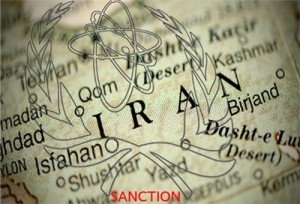 It is crucial that Congress work constructively with President Obama as he tries to lead the way in negotiating a nuclear agreement with Iran.
It is crucial that Congress work constructively with President Obama as he tries to lead the way in negotiating a nuclear agreement with Iran.But some lawmakers are so suspicious of Iran and so blindly committed to more sanctions that they could sabotage the best opportunity in years for a peaceful resolution of an issue that has long blocked any fundamental improvement in relations between the two countries while complicating the prospects for stability in the Middle East.
This week, the United States and its major partners � Britain, France, China, Russia and Germany � will hold the second round of talks with Iran since Hassan Rouhani became president. More moderate than his predecessor, Mr. Rouhani has proposed a deal that could clear up concerns over Iran�s nuclear program and offers the hope of a broader rapprochement with the West.
The negotiating session in October went reasonably well, but Congress could quickly poison the atmosphere by imposing even more draconian economic sanctions on Iran than the existing web of American, European and United Nations penalties that have helped cut Iran�s oil exports nearly in half and otherwise crippled the country�s economy.
In late July, the House voted to impose new sanctions on Iran�s oil exports, and similar legislation is under consideration in the Senate.
The administration has publicly pleaded with Congress to hold off and has organized meetings between Vice President Joseph Biden Jr., other senior officials and key senators. While some were willing to listen, others like Senator Robert Menendez, a Democrat who is chairman of the Foreign Relations Committee, seemed inclined to plow ahead with new penalties.
There are many reasons that doing so would be foolish. It would send a negative signal to Iran�s people as well as its leaders, and make it harder for Mr. Rouhani, who has his own hard-liners to contend with, to argue that there is any sincere good will in the West. Just when Iran appears reasonable, more sanctions could well halt negotiations. The United States would be blamed and the unified international front the Obama administration has worked long and hard to assemble could unravel.
There are, of course, reasons for doubting Iran and its intentions. Tehran hid its nuclear program for nearly two decades and has pushed inexorably ahead to develop the expertise and technology necessary to produce a nuclear weapon, not just nuclear energy. But experts say Iran has not yet produced a nuclear weapon, and Mr. Rouhani and other leaders say Iran will never produce one.
The earlier sanctions imposed by Congress sent a strong message to Iran and helped get the two sides to this point. If negotiations collapse, or Iran proves a faithless partner, fresh penalties can always be imposed later. This is the wrong time for doubling-down on a punitive policy.
By The New York Times
The Iran Project is not responsible for the content of quoted articles.










